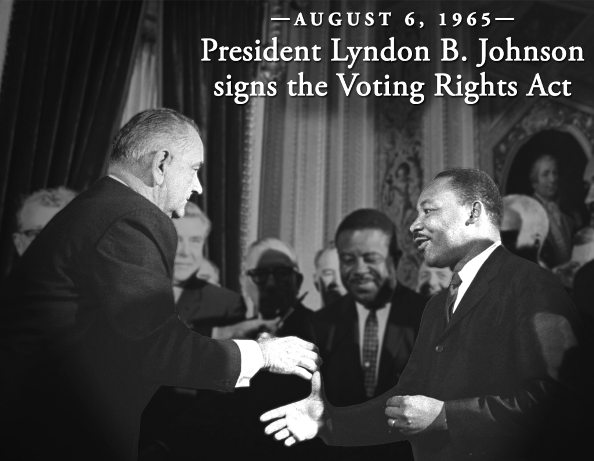Reed Seeks to Update and Advance the Voting Rights Act

Senators introduce Voting Rights Advancement Act of 2019 to prevent voter discrimination nationwide
WASHINGTON, DC – On the 54th anniversary of the first Selma to Montgomery voting rights march, U.S. Senator Jack Reed (D-RI) joined with U.S. Senators Patrick Leahy (D-VT), Dick Durbin (D-IL), Doug Jones (D-AL) and a host of colleagues in introducing the Voting Rights Advancement Act (VRAA) of 2019, which seeks to update and advance voting protections for all Americans.
The bill is being led by Congressman John Lewis (D-GA) and Congresswoman Terri Sewell (D-AL) in the U.S. House of Representatives.
The landmark Voting Rights Act, which was originally passed in 1965 and last reauthorized in 2006, helped make it more difficult for states to discriminate against minority voters, particularly African-Americans, and allowed the federal government to take action against states with a history of Jim Crow laws such as poll taxes and literacy tests that were used to disenfranchise voters.
In 2013, the U.S. Supreme Court voted 5-4 to weaken core protections under the Voting Rights Act in the case of Shelby County v. Holder. As a result, several states and localities throughout the country have implemented policies — such as closing polling places — that disproportionately suppress the voting rights of people of color, the elderly, college students, those living in rural areas, and others.
“We cannot tolerate voter discrimination and suppression, but it has been on the rise since the Supreme Court weakened the Voting Rights Act in 2013. The Voting Rights Advancement Act would modernize the law, provide needed federal oversight, and serve as a check on communities that have engaged in a pattern of restricting voting rights and making it harder for minority votes to be counted,” said Senator Reed. “When any American has her or his voting rights imperiled, it endangers our very democracy. The right to vote is fundamental, regardless of party. It must be protected.”
The bill would require 11 states and dozens of counties with recent histories of voter discrimination to receive federal approval before making electoral changes. The 11 states are: Alabama, California, Florida, Georgia, Louisiana, Mississippi, New York, North Carolina, South Carolina, Texas, and Virginia.
Summary: The Voting Rights Advancement Act of 2019
The bill responds to current conditions in voting today by restoring the full protections of the original, bipartisan Voting Rights Act of 1965, which was last reauthorized by Congress in 2006, but gutted by the Supreme Court in 2013.
- Following the Shelby County decision four years ago, several states passed sweeping voter suppression laws that disproportionately prevent minorities, the elderly, and the youth from voting.
- The bill provides the tools to address these discriminatory practices and seeks to protect all Americans’ right to vote. The Voting Rights Advancement Act of 2019 creates a new coverage formula that applies to all states and hinges on a finding of repeated voting rights violations in the preceding 25 years.
- Significantly, the 25-year period “rolls,” or continuously moves, to keep up with “current conditions,” so that only states that have a recent record of racial discrimination in voting are covered.
- States that have repeated and persistent violations will be covered for a period of 10 years, but if they establish a clean record moving forward, they can come out of coverage. The Voting Rights Advancement Act of 2019 establishes a targeted process for reviewing voting changes in jurisdictions nationwide, focused on measures that have historically been used to discriminate against voters.
- The process for reviewing changes in voting is limited to a set of measures, such as the institution of a voter ID law or the reduction of multilingual voting materials – practices that have historically been found to have the greatest discriminatory impact.
The Voting Rights Advancement Act of 2019 also:
- Allows a federal court to order states or jurisdictions to be covered for results-based violations, where the effect of a particular voting measure (including voter ID laws) is to lead to racial discrimination in voting and to deny citizens their right to vote;
- Increases transparency by requiring reasonable public notice for voting changes;
- Allows the Attorney General authority to request federal observers be present anywhere in the country where there is a serious threat of racial discrimination in voting;
- Revises and tailors the preliminary injunction standard for voting rights actions to recognize that there will be cases where there is a need for immediate preliminary relief.
- Increases accessibility and protections for Native American and Alaska Native voters.

